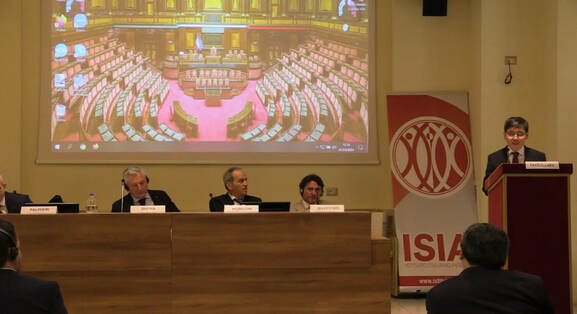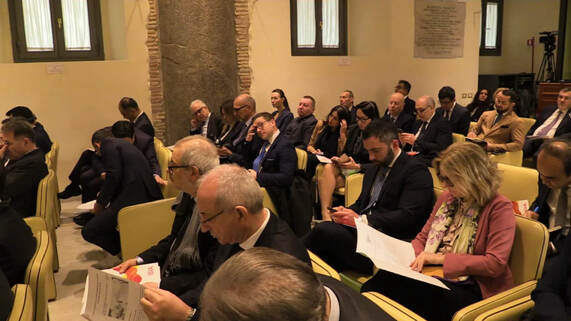The Senate of the Italian Parliament served as the venue for a significant conference titled "The Middle Corridor: A Safe Transit Route between Italy, Azerbaijan, and Central Asia" on March 9, where the enhancement of trade relations between Italy and Central Asia was discussed, Dunyo reports.

The event witnessed the participation of Edmondo Cirielli, Deputy Minister of Foreign Affairs and International Cooperation of Italy, along with parliament members, analysts, and diplomatic mission heads from Central Asian countries and Azerbaijan. The Italian Institute for Asia (ISIA) orchestrated the conference, marking a pivotal moment in exploring regional cooperation and trade dynamics.
Reconnecting with Central Asian Region
Senator Francesco Silvestro, chairman of the Regional Relations Commission of both chambers of the Italian Parliament and one of the primary initiators of the conference, underscored the imperative for Italian businesses to reengage with the swiftly evolving landscape of Central Asia. Notably, he highlighted the burgeoning trade relations, with Italy's exports to the region surpassing $2bn, signalling a ripe opportunity for collaboration and mutual benefit.
Central to the discussions was the exploration of the Trans-Caspian international transport route, popularly known as the "Middle Corridor," and its role as a viable alternative in the evolving geopolitical scenario. Participants lauded the efficacy of this route in facilitating trade between Asia and Europe, particularly emphasizing its significance in enhancing trade relations between Italy, the European Union, and the Caucasus and Central Asian regions.

Multimodal Transport Infrastructure
Mario Morgoni, President of the ISIA Institute, articulated a strategic vision for the Trans-Caspian corridor, highlighting its potential as a vital multimodal transport and energy corridor connecting Italy with East Asia.
Emphasizing the importance of the "Road Map" adopted by Azerbaijan, Georgia, Kazakhstan, and Turkey in November 2022, Morgoni outlined plans to enhance the corridor's capacity to 10mn tons of cargo by 2025. He also underscored the European Union's commitment to invest €10bn in sustainable transport links in Central Asia under the "Global Gateway" initiative.
Deputy Minister Edmondo Cirielli reiterated Italy's readiness to contribute significantly to the development of transport infrastructure and support the economies of the Central Asian region.
He outlined Italy's intention to collaborate on critical areas such as water management and ecological sustainability, underscoring the nation's commitment to providing technical and financial support for pilot projects aimed at addressing regional challenges.
Promising Prospects for Uzbekistan and Its Partners
Ambassador Abat Faizullayev of Azerbaijan highlighted Uzbekistan's strategic vision for its transport system until 2035, with a particular emphasis on the establishment of the Trans-Caspian Corridor. He outlined ongoing efforts to streamline cargo transportation mechanisms, including electronic exchange systems with neighboring countries.
Additionally, he shed light on ambitious railway construction projects, such as the "China-Kyrgyzstan-Uzbekistan" and "Termez-Mazari-Sharif-Kabul-Peshawar" routes, poised to further bolster regional connectivity and trade volumes.
Follow Daryo's official Instagram and Twitter pages to keep current on world news.
Comments (0)